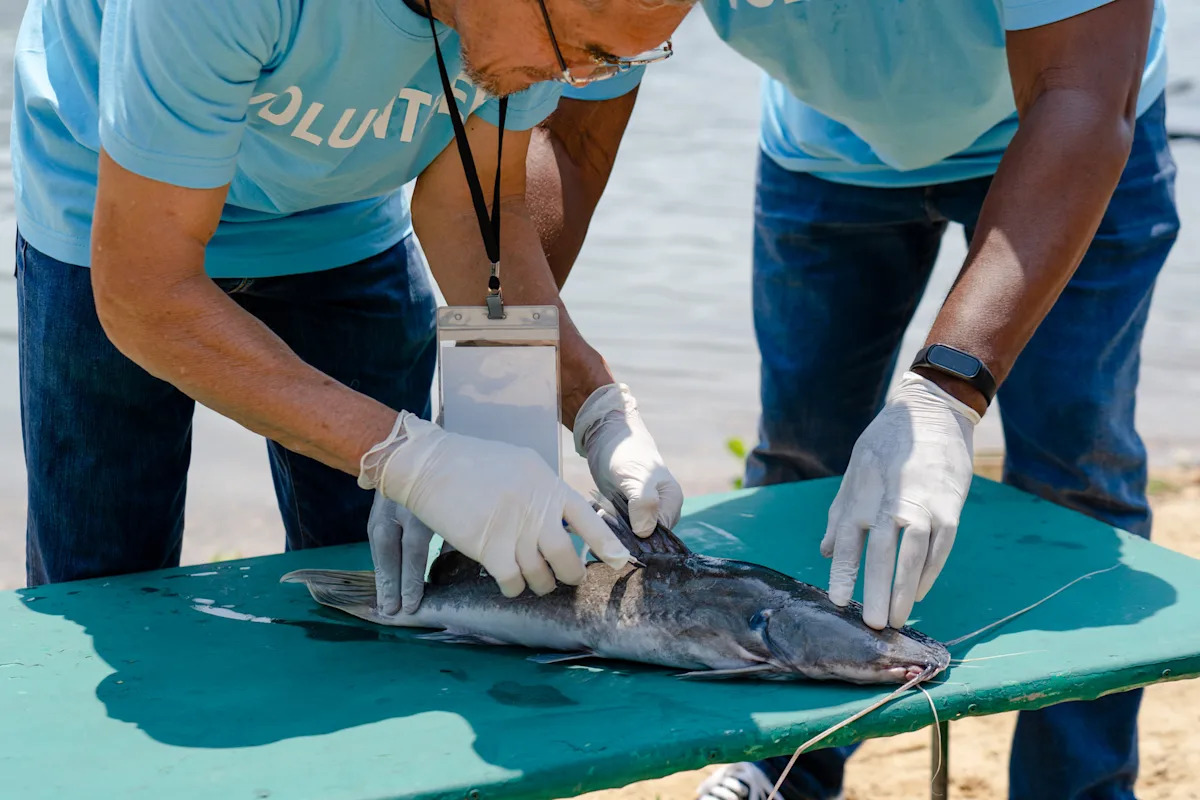Discarding some fishing tackle or old line might not seem like a big deal in the moment — but it’s often a fatal decision for innocent wildlife.
Nobody knows this better than the team at Blyth Wildlife Rescue (BWR), a rescue charity group in England. BBC recently spoke with the BWR team to share its story and issue a plea about the amount of “preventable and needless” litter the rescue workers have been dealing with in their work.
“There is rarely a week goes by where we aren’t tasked to provide emergency assistance to animals trapped in fishing line or other discarded/lost litter,” BWR shared in a recent Instagram post. “Sometimes we have several rescue requests at one time, spread across a wide geographical area, placing a great deal of pressure on a small number of volunteers with limited resources.”
The team told BBC about several recent incidents involving wild animals, including a fox whose head was stuck in a can, another fox whose head was stuck in a discarded piece of drain pipe, a seagull with a tennis ball lodged in its throat, a swan with a plastic ring embedded around its lower beak, and a duck with half a yogurt container stuck around its beak and neck.
“It causes suffering and cuts into their skin, developing an infection,” said Janice Eden-Bagley, a BWR volunteer. “It’s a really horrible thing to see.”
In many of these cases, animals such as these are also starving. Whether the plastic keeps their beaks shut or their stomachs become full of netting and plastic, litter kills animals slowly and painfully through starvation and thirst.
Fortunately, the team was able to rescue and rehabilitate many of these particular individuals, though medic Sara Perry lamented to the BBC that they would never be able to reach all of them. “There will be ones we don’t know about that will be suffering right now,” she said.
The BWR has visited local schools to educate children on the importance of recycling and proper disposal of litter.
To protect animals in your area, volunteering or donating to a local rescue organization is an excellent way to get started. But on an even more basic level, Eden-Bagley implored in the BBC report: “If you see litter, pick it up, even if it’s not yours.”
“It could save an animal’s life,” she said. “People have lost sight of what their actions mean.”
Join our free newsletter for good news and useful tips, and don’t miss this cool list of easy ways to help yourself while helping the planet.

